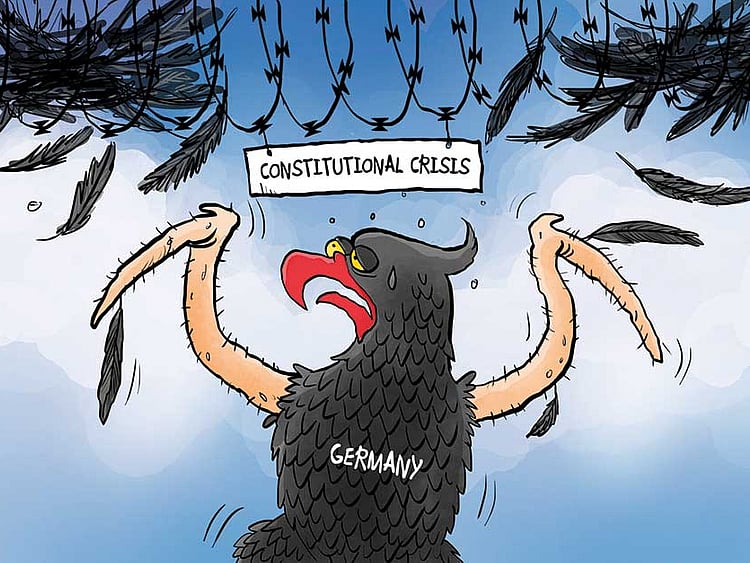German crisis marks end of post-war order
Macron will emerge by default as the de facto leader of the EU for a while as Merkel grapples with coalition woes, though this is unlikely to do the French president any good

The last time Germany proved unable to form a government was under the Weimar Republic. We will not see a repeat of the Thirties this time, but the failure of the “Jamaica” coalition talks is not a trivial matter either. The country faces a constitutional crisis. There is no clear-cut legal mechanism for snap elections. A fresh vote is unlikely to resolve the deadlock in any case since the fragmentation of the Bundestag may well be greater.
“It is an unprecedented situation in the history of the federal republic,” said President Frank-Walter Steinmeier. Opinion polls suggest that minor parties in various states of populist or ideological revolt — above all the hard-Right Alternative for Deutschland — will make further gains. With hindsight the election in September is taking on much greater significance: in reality it marked the end of Germany’s post-war order, the happy era of moderation and the dominance of two great incumbent volksparteien. This rupture is a direct result of the economic and political model pursued by the German elites for the last 15 years, known to critics on both the Left and Right as “hyper globalisation”.
“It is better not to govern at all than to govern badly,” said Christian Lindner, leader of the pro-market Free Democrats (FDP), after cutting off the talks. His real game is to tap into simmering discontent over immigration, calculating that Chancellor Angela Merkel’s Christian Democrats have left him an open goal.
“Germany is turning to soft nationalism,” said Ashoka Mody, a former bailout chief for the International Monetary Fund in Europe. “People on low incomes are voting against authority because the consensus on equality and justice has broken down. It is the same pattern across Europe.” Mody said the bottom half of German society had not seen any increase in real incomes in a generation.
“Germany’s real weakness has been the lack of public investment. They have been running down their public sector stock even though they could borrow at negative rates,” he said. The austerity doctrine and the quest for a balanced budget above all else have left deep structural problems. The country has neglected digital infrastructure. It has the lowest ratio of high-speed broadband in the OECD [Organisation for Economic Cooperation and Development] club. The collapse of coalition talks kills off any lingering hopes of a “grand bargain” between France and Germany, intended to relaunch the eurozone on viable foundations with a fully fledged fiscal union.
French President Emmanuel Macron will emerge by default as the de facto leader of the EU for a while as Germany grapples with its internal crisis, but this is unlikely to do him any good. “There may be a eurozone finance minister as a fig-leaf appointment. The likelihood of a substantive pooling of resources is zero,” said Tilford.
Monetary union will face the next global downturn with the old unresolved pathologies and no real buffers against an asymmetric shock, but this probably would have happened anyway with a “Jamaica” government.
Tilford said that months of introspection in Germany spells trouble for Brexit talks. “Germany is absolutely crucial in brokering a deal between the other member states. A disengaged leadership caught up in internal wrangling is not going to be focused on knocking heads together,” he said.
— The Telegraph Group Limited, London, 2017
Ambrose Evans-Pritchard is international business editor of the Daily Telegraph. He has covered world politics and economics for 30 years, based in Europe, the US and Latin America.
Sign up for the Daily Briefing
Get the latest news and updates straight to your inbox
Network Links
GN StoreDownload our app
© Al Nisr Publishing LLC 2026. All rights reserved.